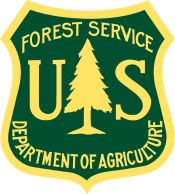Ignition patterns influence fire severity and plant communities in Pacific Northwest, USA, prairies
| Title | Ignition patterns influence fire severity and plant communities in Pacific Northwest, USA, prairies |
| Publication Type | Journal Article |
| Year of Publication | 2016 |
| Authors | R Martin, A |
| Secondary Authors | Hamman, ST |
| Journal | Fire Ecology |
| Volume | 12 |
| Start Page | 88 |
| Issue | 1 |
| Keywords | prescribed burning, restoration and hazardous fuel reduction, technical reports and journal articles |
| Abstract | In the prairies of the Pacific Northwest, USA, fire has been reintroduced as a tool for reducing non-native, invasive plant cover and promoting the growth and establishment of native plant communities. Head fires and backing fires are the two primary ignition patterns used to complete most prescribed burns, but the relative effectiveness of these two methods on invasive plant control and native enhancement is unknown. A clear understanding of the relationship between fire behavior, fire severity, and fire effects on vegetation and how these metrics are affected by fire ignition patterns could help managers fine tune burn prescriptions to better achieve ecological objectives. We used observations from five prescribed burns in the south Puget Sound prairies of western Washington, USA, to evaluate the relationship between intensity, severity, and effects. Additionally, we collected data from two burns on how ignition patterns affected these relationships. We found a significant positive correlation between maximum surface temperature and fire severity, and a decline in perennial taxa with increasing fire severity. We also found that surface temperatures did not differ between ignition patterns, but a greater area burned at moderate severity in backing fires than in head fires. Ignition patterns differentiated plant communities by changing the number of species present within different life form categories. However, this response was contingent upon site history and pre-burn conditions. Native perennial forbs were associated with head fires in a site with high pre-existing native plant species richness. Native and exotic forbs were associated with backing fires at a site with low pre-existing native plant species richness. Thus, managers may want to consider ignition patterns when planning burn prescriptions in order to achieve particular ecological objectives. |
| URL | http://fireecologyjournal.org/journal/abstract/?abstract=271 |




